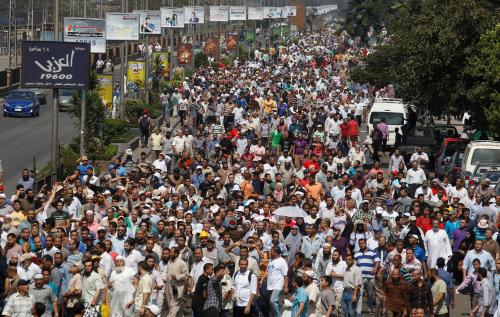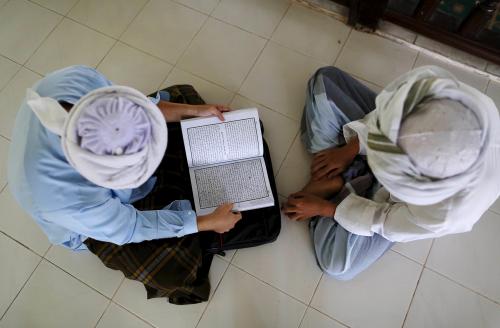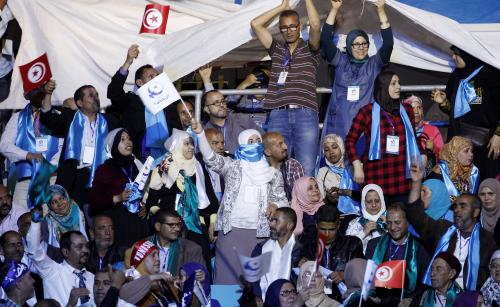We continue here Brookings’ interview series with Islamist leaders and activists, as part of our Rethinking Political Islam initiative. We asked each participant to discuss the state of his or her movement and reflect on lessons learned from various crises, including the rise of ISIS and the 2013 military coup in Egypt. So far we’ve released interviews with Egyptian, Lebanese, Pakistani, Moroccan, and Tunisian Islamists.
Up next is Mustafa Elnemr, a youth activist in the Muslim Brotherhood who was arrested in 2014 during a protest and imprisoned. After his release, he settled in Turkey, where he works as a researcher for the Egyptian Institute for Political and Strategic Studies, where he focuses on methods of nonviolent resistance.
Elnemr begins the interview by addressing the mistakes made by the Muslim Brotherhood after the 2011 revolution, including over-trusting the army and rushing into elections. Later, in this segment, Elnemr describes how the Brotherhood’s identity and understanding of “revolution” and “reform” have evolved over time. Shadi goes on to ask Elnemr what he thinks the end goal is, or should be. Drawing on the ideas of Brotherhood founder Hasan al-Banna, Elnemr explains his conception of the state and civil society. The more the state gains in authority and jurisdiction, civil society loses a degree of robustness and freedom, he argues. In Elnemr’s ideal, the state would be minimal, with civil society comprised of individuals freely associating to organize their communities and solve problems as they best see fit. The interview ends with a discussion of the Brotherhood’s position on the use of violence: Is its non-violent stance principled and consistent, or has it engaged in double-speak, and passively legitimated violence against the state?
Check out the full interview here. Click the links in the paragraph above to jump to specific segments.








Commentary
Islamists on Islamism today: An interview with Mustafa Elnemr, Muslim Brotherhood youth activist
April 4, 2017